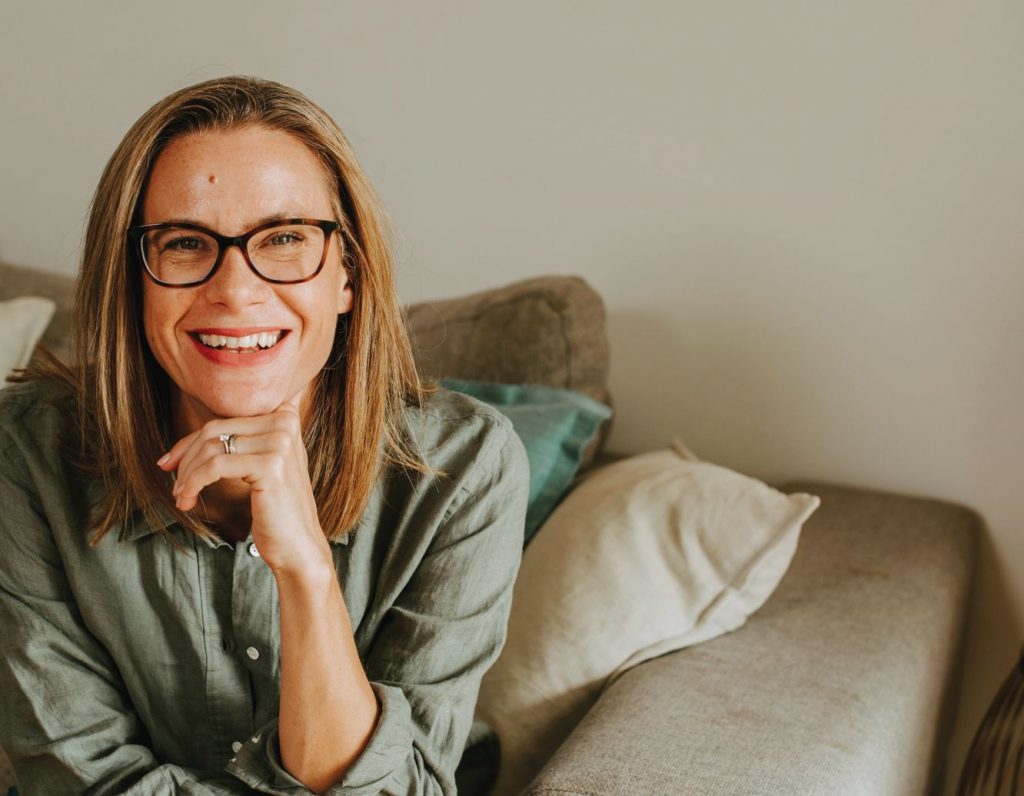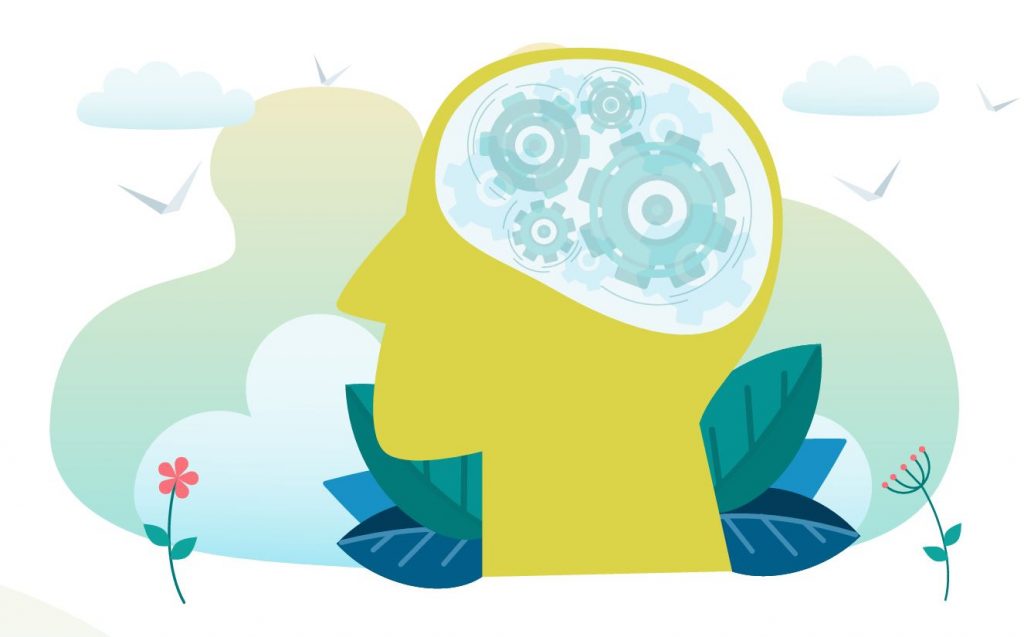Defining Counselling Part 2: A Practitioner’s Approach
Defining Counselling: Part 2 of 3, as featured in Vol 23 No 2 Winter 2022 of the Counselling Australia Journal.
In this second instalment, we talk to doctor-turned-counsellor Vicky Dawes about the importance of counsellors and its distinction from the medical field.
By Larissa Dubecki
After seven years of working as a doctor in emergency medicine, Vicky Dawes had reached burnout. “It’s a really common phenomenon,” she says. “But it’s only recently been spoken about more openly. It’s related to the work environment – very stressful, high pressure, little room for taking a break. Then you can add to that the fact that medicine does attract these high achievers who throw themselves into their careers. The telling thing is that burnout does happen to a massive number of doctors.”
Now a clinical counsellor, Vicky can look back and see certain augurs had anticipated her shift to counselling: “While I was in medicine, I always loved seeing people who essentially needed counselling. The other doctors would say, ‘Vicky, can you go and see this person because I don’t know how to handle this’ – because they didn’t know how to handle it. It’s undervalued how important it is, often with people who are quite distressed.”
Taking the leap from emergency medicine to counselling – with a short-lived stint of psychiatrist training in between – has proven a fortuitous one for Vicky. A graduate of the University of Queensland with a Master of Counselling, she spent five years as counsellor and educator for a not-for-profit doctors’ health service, supporting doctors and medical students with their own mental health and wellbeing.
Now in private practice, Vicky specialises in bespoke therapy for doctors, professionals and university students. “Going from medicine, which is socially held up on a pedestal, to counselling – which in many ways isn’t – has been interesting. But I absolutely love it,” she says. “Giving patients the permission to be vulnerable and responding to shame with empathy is enormously powerful. I really do think that counselling proves, in bucketloads, the importance of the therapeutic relationship.”

From doctor to counsellor: a cultural shift
Vicky observes from her real-life experience that medicine and counselling are seen in vastly divergent ways, even though both are patient based. “In my former career as a doctor, I had been taught how to efficiently take a history from a patient, examine their body for signs and symptoms, come up with a diagnosis and differentials, and start treatment – based off the best evidence available at the time,” she says.
“As a medical practitioner I was often positioned as expert. Moving into counselling was a complete shift in both mindset and approach. While both roles encourage the doctor or counsellor to approach the patient or client from a position of curiosity and not knowing, in counselling I learned the immense value of deep empathic listening, of recognising the client as expert in their own lives, and of the power of walking alongside someone in their time of need rather than telling them what was ‘wrong’ or jumping in to ‘fix it’. While ‘bedside manner’ is touched upon in medical training, counselling recognises the profound importance of the therapeutic alliance underpinning whatever therapeutic approach is taken.”
Her own professional shift revealed the cultural weight applied to the hierarchies apportioned to the health industry.
Vicky says she was seen to ‘abandon’ the more culturally valued field of medicine. “It was culturally unacceptable, especially to doctors of a certain age who would say things like ‘oh, that’s a shame’ when they found out I was leaving – or to tell me they thought I was throwing it all away.
“Your identity as a doctor is so entwined in your sense of self. While colleagues were generally incredibly supportive, it did reveal to me that there is shame attached.”
Vicky remains active in a Facebook group for medics looking for an alternative route through the profession. “It has thousands of members. Almost daily there’s an anonymous post from someone reporting their experience and saying ‘I don’t know what to do’, and I’ll jump in and say I’m very happy to talk. Without fail I’ll get four or five messages from other people saying, ‘I saw your post, can I please speak to you.’ The number of people getting in touch is staggering.”
A shared experience
In 2016, Vicky graduated from UQ with her master’s degree – where her thesis became the basis for the university’s student-based Mental Health Strategy – and she was struck by the “absolute brain shift” in moving from the medical model.
“You take information, you’re refining it, trying to come up with a differential diagnosis, you’re very much positioned as the expert. It’s a real brain shift to realise it’s not just about the information that you’re getting, it’s not that you’re the expert, because you’re very much not, but it’s just as much the process and the immediacy of what’s happening between you. It’s such a deeply respectful, shared experience. It’s amazing and such a privilege to be able to do that with people.”
Her approach to counselling involves first gauging the individual patient’s needs, and their hopes as to what counselling will provide.
“I often ask people if they have an idea of what they’re looking for. Sometimes they’re looking for strategies, sometimes they just want to talk and other times they want to figure out why they think the way they do,” Vicky says.
“There’s the solution-focused counselling approach, but I think it’s the deep respect for walking alongside someone in the knowledge you’re not there to come up with all the answers. I’m not the expert on their life but I’m facilitating them on their path of exploration.
“When we think about the contrast with medicine, we know that doctors whose patients like them are far less likely to be sued and, if you delve into that, it’s really about people wanting a personal connection. It’s not the person who prescribing antibiotics, it’s the person who makes you feel safe and heard. That’s the power of the interpersonal therapeutic alliance.”

The pedestal effect
Originally from the UK (she completed her medical degree at the University of Birmingham) and then moving to Australia, Vicky has seen a notable difference in attitudes towards counselling between the two countries.
“Sadly, counselling is often undervalued in Australia – potentially due to its unregulated nature, potentially due to psychology positioning itself as expert, and potentially as Australia does not have such a rich and respected history of counselling and psychotherapy – unlike places like the UK, Europe or the US.”
One of the fractures in the way counsellors are seen stems from it being an unregulated profession.
That said, any step to raise the profile of counselling should be taken with careful consideration. She says there are both advantages and disadvantages to trying to get counsellors eligible for Medicare rebates – for instance: “I know many of my doctor clients are deeply suspicious of Australian Health Practitioner Regulation Agency–registered practitioners, due to the fear of mandatory reporting by treating practitioners.”
Nor is Vicky an advocate of counsellors moving into the area of other allied health professionals by performing diagnostic tests, for instance. “Absolutely we need to be more formalised as allied health professionals,” she says.
“But while the more formalised assessment processes used by psychologists are often positioned as a strength of psychology, counselling’s strength really relies on there being nowhere to hide. We are not reliant on trying to define someone’s experience according to their responses to assessment, but rather on seeing the person as a whole and helping the individual to explore that themselves, taking into consideration all the complex influences that make each individual who they are. We’re less about labelling and reductionist thinking and [more about] seeing the messy, complex whole of a person. I don’t believe counsellors do want to be performing diagnostic tests. There is a risk if you go too far down the traditional diagnostic route that it takes away the power of what counselling is all about.”
The unregulated nature of counselling in Australia creates something of a grey area that can only be policed by individuals. “Legally, ethically and morally, counsellors should not be practicing beyond their area of expertise,” says Vicky. “While some situations will be standardised – for example, legal requirements – others are likely to differ according to the individual counsellor’s experience and training.”
A long and winding road
Vicky uses the concept of ‘planned happenstance’ to describe her unexpected – and entirely rewarding – journey from medicine to counselling. A term used in careers counselling, it counters the traditional narrative of a career as a linear arc, starting at A and winding up at B.
“Particularly when you’re younger you think you need to know where you’re going and what your goal is. But planned happenstance is the idea that there’s real benefit to taking a meandering route, because not only will you gain experience along the way but also you’ll wind up at a place you could never have anticipated at the outset,” she says. “Me as an 18-year-old at med school in the UK could never have anticipated living in Brisbane in my 40s as a counsellor. All of my experiences have been really helpful, and I feel like I’m in the right place now.”



